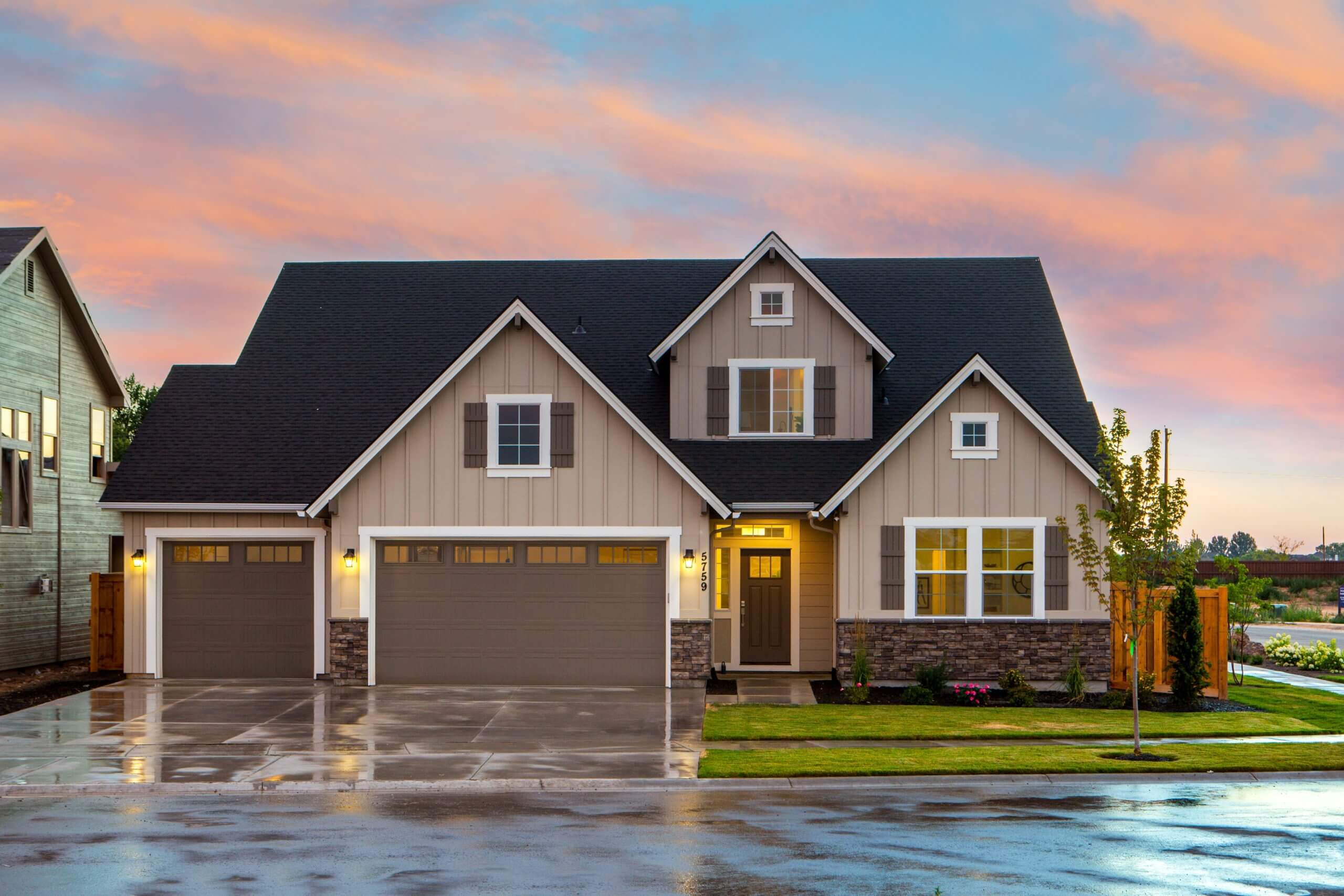DECEMBER 30, 2021
The Top 10 Reasons Why You Don’t Want to Keep the House After Divorce

The marital home is often a point of contention during a divorce. Whether or not to keep the house can raise a lot of emotions, especially when children are involved. If you are thinking about divorce or are in the process of getting one and wondering if keeping the house is the best choice, consider the following factors. The decision you make now can affect you and your family for years to come.
1. You can’t afford to buy it from your spouse.
Most spouses aren’t going to hand over the marital home to their spouse in a divorce. If you have been married for a while, you have likely accumulated equity in the house, to which you and your spouse may each be entitled a portion.
Washington is a community property state. That means whatever property spouses acquire during their marriage, they each have a 50-50 ownership right in it. Therefore, if you decide to keep the house, you will have to pay your spouse for their share of the equity. Do you have the money to do this?
Another option is to exchange the house for other assets, which means you will have to give up something else in your settlement in order to keep it. The point is the house is going to cost you in some way, even if there isn’t a direct buyout, and you have to make sure the financial decision you make will be the right one, especially because after you buy a house, it can still cost you.
2. Upkeep for a house is ongoing and expensive.
You may love your home and have created a lot of memories there, but without your spouse present, it’s important to figure out if you will be able to afford to support your house on your own.
This doesn’t only mean your monthly “nut,” those basic expenses such as your mortgage payment, real estate taxes, and utilities, among other payments. Some of these payments can also increase over time.
A house also costs a lot of money to maintain. Home repairs and capital improvements can range in the thousands. When damage or repairs come without warning, they can put financial strain on an already tight budget. Therefore, it’s important to expect the unexpected and plan for it.
3. If you decide to sell the marital home after divorce, it can cost you.
If you decide to keep the house and then sell it later, it can cost you. First, a house isn’t always an appreciable asset. Depending on the real estate market, a house can depreciate in value, especially if you and your spouse haven’t owned the home for a long time.
Another possibility is that the home appreciated so much that when you sell it, you will be responsible for paying capital gains. Before deciding to keep the house, especially if you think there is a chance you will sell it in the foreseeable future, you should speak with a tax professional so you understand what the costs of doing so can entail.
4. You are using the marital home to hold onto your spouse.
Ask yourself: Why do I want to keep the house? If it’s because you are using it as a way to hold onto your spouse, to stay connected to them, check yourself. First, spouses who don’t want to stay married generally won’t. As much as your spouse might love the house you are fighting over, if they want to leave the marriage, they will regardless.
Fighting over an asset you don’t actually want is also a great way to lose money. When spouses fight, the cost of the divorce rises. Also, be careful of what you wish for because you just might get it. That applies to the house or a spouse who doesn’t want to be married to you.
5. There are too many memories.
Your spouse might not live in the house anymore, but memories of them there will live on for a long time, if not forever. The time after divorce is very much about building a new way of life, independent of your ex. Memories have a great way of keeping you tied to your past, preventing you from moving on in a positive and constructive way.
6. You have plans to remarry.
If you are considering remarrying sometime in the future, and moving will be cost-prohibitive later, think about how you would feel having your new spouse move into the home you once shared with your former spouse. Also, think about how your new spouse might feel.
7. Keeping the house causes tension with your ex that probably isn’t worth it.
Even when one spouse buys the other spouse out of the marital home, how the owner spouse handles the house after can cause tension. Renovations, a new love interest or new spouse moving in, and the very fact that the house now belongs to one spouse exclusively can cause tension.
Depending on how you anticipate your spouse reacting down the road to you keeping the marital home might make you want to consider if keeping it is a decision you want to live with. Is having to deal with an angry ex, who seems to only get angrier at the sight of you in the house where they once lived, worth it?
Having been married to this person, you might already know the answer. Although people can surprise you in both a good and a bad way.
8. You are keeping the house to spite your ex.
Speaking of angry exes, if you are the vindictive one and are looking to keep the house to spite your ex, remember the adage: “Not forgiving is like drinking rat poison and then waiting for the rat to die.” In other words, this approach won’t be good for your health and wellbeing.
Then, of course, there is everyone else to think about. Friends, extended family, and, most importantly, your children. Your goal as a co-parent is to peacefully co-exist with your children’s other parent. If you behave in a spiteful manner, your children will pick up on it. The children might become angry with you, your ex, the world, or themselves. Your ex, in turn, will likely become angry with you because of this. You will become angry with yourself.
Now switch out the word angry for sad, depressed, distracted, ambivalent, and any other negative adjective you can think of. In other words, no good can come of this type of behavior.
Again, is a house really worth all this? Issues like the ones mentioned above can have a generational impact affecting relationships, friendships, marriages, parenting, and work. For everyone involved — you, your ex, and your children. That’s a price far greater than any house can command.
9. You don’t want to uproot your children.
It’s your children’s home. You don’t want them to have to leave their childhood bedroom, possibly change schools, or change their lifestyle in any way. But guess what? Once your spouse, their other parent, leaves the marital home, life is going to change regardless.
What you want to do is create stability for your children. And no four walls can do this without your cooperation and input. So if you are using your children as a reason to stay, understand that their sense of security comes directly from you and your ex. Since you can’t control what your ex does, and only yourself, you have the ball solely in your court. Which means if you are feeling powerless right about now because you might have to move out of your house, think again.
Wherever you are is home. There are also ways to make a new home feel just as, if not more comfortable, than the marital home ever was even if it’s not as large, nice, or expensive. The love you bring to a home with your attitude and the way you treat your space — from keeping it well lit, clean, orderly, and decorated to your children’s liking according to their input — will make a transition much easier. You might even be surprised that they — and you — like a new home more.
10. Your kids are pressuring you to keep the house.
As parents, it can sometimes feel instinctive to want to give in to children’s demands. We want our kids to be happy, and to that end, might be inclined to make decisions based on emotions.
Divorce is filled with enough pressure as it is to then have to feel as if you are going to fold under the pressure you are getting from your kids, or, in the same vein, your kids, your parents, or yourself for not wanting or being able to do what other people want. Not to mention, worrying about what the neighbors might think.
The moment you feel any pressure from someone else to act in a certain way, in this context to keep the house, take a step back to look at the grass and see where it will be the most green. After divorce, it won’t necessarily be in the backyard of your marital home.
If you would like to discuss why you don’t want to keep the house after divorce, contact one of our Seattle divorce attorneys today. We are here to help you. Give us a call today.
Stay up to date
Subscribe to our newsletters
Subscribe to one or more of our newsletters, delivering meaningful insight on topics that matter to you and your family.





